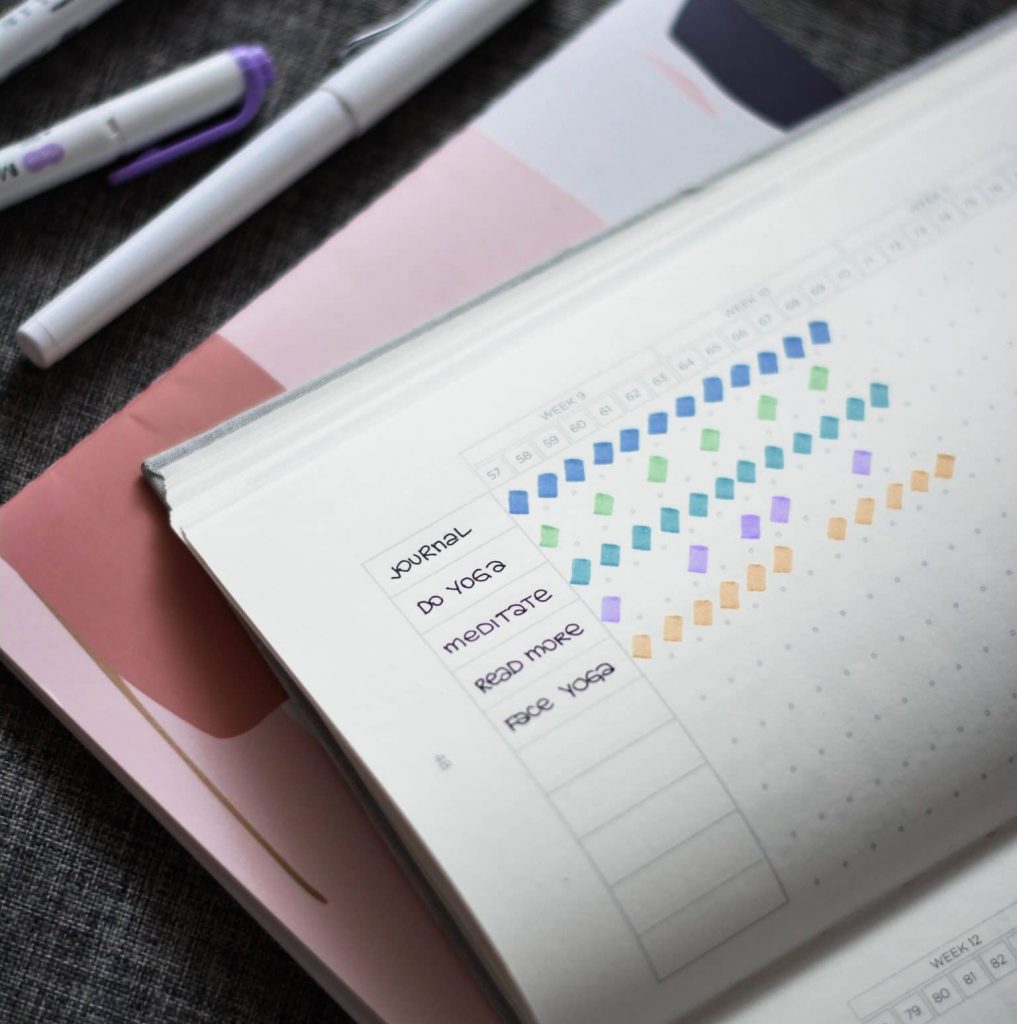Finding Focus in Uncertain Times

If you could pick one word to describe 2020, what would it be?
I would choose “uncertain”.
In January, I thought I had a pretty good idea of what the year would look like. How young and naive I was. Now, I can confidently say that I have zero clue what the remainder of the year will look like.
And I’m not alone. Everyone I know feels uncertain. About everything.
The constant, confusing stream of bad news doesn’t help. We read the news, hoping to get some concrete answers, but we come away feeling more perplexed.
This thick fog of uncertainty is making it really hard to be focused and productive. Regular routines and structures have gone out the window. We’re scrambling to adapt to new working conditions.
And while uncertainty levels are at an all-time high right now, it’s not going to totally disappear once this is all over. We will all continue to experience periods of confusion and anxiety from time to time. That’s just how life is.
So how can we find focus when it feels like everything is turned upside down?

This Is Your Brain On Crisis
Our brains are hardwired to seek certainty. Certainty feels safe. We know what’s coming and what to expect. We can formulate our response in advance, mapping out what we’ll do and when we’ll do it. Our brains equate certainty with survival and uncertainty with danger.
We crave certainty so much that we would rather experience pain right now than live with possibility of pain in the future. In a test conducted by British researchers, participants who were told that they definitely would receive an electric shock were significantly calmer than those told that they might be shocked.
When we confront the unknown, stress levels dramatically increase. Our brains go into overdrive, trying to figure out how to best protect us, looking for something solid to hold onto. We desperately want to know what’s going to happen.
In a 2009 study, Daniel Gilbert, Yoav Bar-Anan, and Timothy D. Wilson noted that the presence of uncertainty intensifies existing emotions. In other words, if you’re already dealing with negative feelings, uncertainty amps those feelings up even more.
Having to deal with current challenges is hard. Not knowing when things will go back to normal makes it even tougher.
Not surprisingly, it’s really hard to focus and get things done when we’re filled with anxiety. When we’re uncertain about what’s ahead, motivation falls. It’s hard to be driven to accomplish future goals when the future itself is murky.
The good news, however, is that there are specific things we can do to reduce the amount of uncertainty we feel and improve overall levels of focus.

5 Strategies To Strengthen Focus In Times Of Uncertainty
Building structure and routine into your life can give you a sense of normalcy and reduce anxiety levels. It won’t reveal the future but it can give you a sense of what things will look like on a day-to-day level.
1. Start With Self-Care
Let’s begin with the oft-neglected basics: sleep, exercise, and nutrition.
Shoot to consistently go to bed and rise around the same time. Don’t binge watch until 4:00 am and then get up a few hours later. Give your body enough sleep so that you wake feeling rested and recovered.
Consistently exercising will do wonders for your mood. Structure your schedule so that you can get your body moving and heart pumping at some point every day.
Try to eat healthy meals at consistent times each day. Wolfing down a Pop-Tart while replying to emails isn’t going to help you. Having set meal times during which you eat real food can provide a nice rhythm to your day and ensure that you stay properly fueled.
2. Structure Your Days
When you don’t have structure or routine, you have to constantly make decisions about what you’ll do and when you’ll do it. Will you start work early or will you sleep in? Will you run at lunch or browse YouTube?
This constant decision making requires mental energy, and every decision depletes your energy more. As your energy falls, you begin to experience decision fatigue and your ability to think clearly is impaired. Your willpower is also drained, making it really tough to find focus and get stuff done.
When you create structure for your days, it significantly reduces the number of decisions you need to make, improves levels of focus, and gives you a feeling of stability.
As much as possible, try to create a consistent schedule for your days. Know when you’re going to wake up, start work, eat meals, and end work.
If you really want to get granular with your schedule, consider using time blocking. With time blocking, you literally plan out every hour of your day so that you know exactly what you should be doing at all times.
Another helpful way to add structure to your days is to create “boundaries” that mark the transition from one part of your schedule to the next. For example, before you start work, shower and get dressed. Or when you eat lunch, move into another room. When you cross these “boundaries” it signals to your brain that one part of your day is ending and another is beginning.
3. Create A Focus-Enhancing Environment
With a huge number of businesses temporarily closed, millions of people are working from home for the first time. If you’re one of them, you know how hard it can be to concentrate at home, especially if you have kids or roommates. While you’re trying to work, someone else is playing video games or talking on the phone.
If you’re going to be productive while working at home, you need to optimize your environment for focus.
Choose a spot in your home where you will primarily work. Obviously, if you have a home office, use it. If you don’t, choose a well-lit spot where you’ll be comfortable working for stretches of time. Don’t choose a dingy area that you hate being in.
Get a comfortable chair and set up your workspace so that it promotes good posture. You don’t want to be slouched over all day.
To reduce the amount of noise you hear, pop in some headphones and listen to peaceful music or ambient noise that promotes concentration.
Some listening options to consider:
- Freedom’s Dashboard Coffee Shop Sounds
- Brain.fm
- Noisli
- myNoise
- Deep Focus on Spotify
- Ambient Deep Focus on Spotify
When you’re done working for the day, “close” your workspace down. Close browser tabs, shut your laptop, etc. This “boundary” signals to your brain that you’re moving from work to rest.
4. Eliminate Digital Distractions
During a crisis, the temptation to browse online is amplified. You want to check the news to get the latest updates and you want to see what people are saying on social media sites. Unfortunately, all that browsing can take a toll on you emotionally. A constant stream of negative news and conflicting opinions can leave you feeling depleted, anxious, or angry.
Pay attention to how different websites affect you and consider implementing some form of digital minimalism. Cutting back on the amount of news you consume can reduce anxiety levels. Spending less time on social media can give you increased mental clarity.
If you have trouble staying away from these kinds of websites, tools like Freedom can help. Using the apps or browser extensions, you can block unhelpful websites and phone apps so that you can’t access them even if you try. Without as much mental clutter, you’ll feel clearer and calmer.
5. Create and Embrace The Positive
It can be really difficult to be positive during tough times. But as the saying goes, what you focus on grows. If your attention is focused on the negative, your negative emotions increase, which causes you to focus even more on the negative, and so on.
One simple way to create and embrace the positive in your life is to practice gratitude. Research has shown that practicing gratitude carries enormous benefits, including creating new relationships, improving physical and psychological health, improving sleep, reducing aggression, and more. It’s a simple practice that produces big results.
Another easy way to infuse your life with positivity is to practice mindfulness. Mindfulness helps you stay rooted in and enjoy the present moment. Instead of thinking about how you wish everything was different, mindfulness helps you appreciate your current experience. Plus, it has been shown to improve both your physical and mental health.
Creating space for activities you enjoy is another way to find joy in the day-to-day. Go for a walk. Bake a cake. Read a great book. Watch a classic movie. Doing these kinds of small, enjoyable activities fills your days with pockets of pleasure.
And, of course, reach out to loved ones and friends. FaceTime with your mom or chat on the phone with a friend. Even something as simple as checking in with someone via text can create a meaningful connection. Don’t go through tough times alone. Get support from those close to you.

Be Kind To Yourself
In times of uncertainty and stress, it’s essential that you be kind to yourself. You’re going to have days when you’re unfocused and unproductive. You may experience more fatigue than usual. These things are normal. You’re human, and like everyone else, you’re going to be affected by your circumstances.
Yes, you should take steps to improve your levels of focus. Do what you can to eliminate distractions and build structure into your life and create positivity.
Eventually, things will get better. The uncertainty will fade and your stress levels will fall. But until that happens, cut yourself some slack.
Additional Resources
- SAMHSA Disaster Distress Hotline – offers free and immediate crisis counseling by either call or text (Spanish counseling also available)
- Free Headspace Plus for the unemployed – Discover meditation and mindfulness tools to help you feel less stressed, more resilient, and kinder to yourself
- Free work from home resources: Free Freedom Premium for first responders and researchers, CaveDay, Brain.FM and more!


